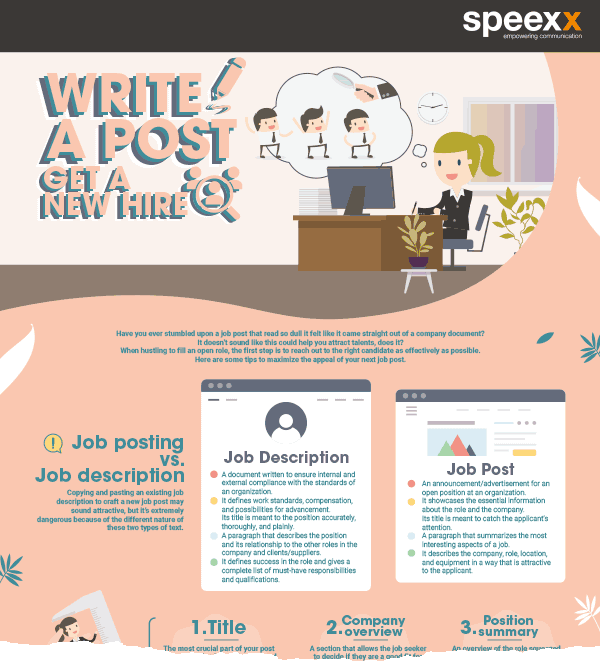Vers la prochaine révolution du travail
Après les changements rapides qui sont intervenus dans le monde du travail ces dernières années, tout bon manager ou business leader attend maintenant, un peu anxieux, la prochaine révolution.
Pour Silvia Leal, Directrice des programmes ICT à l’IE Business School et professeure d’IT, si les dirigeants veulent à tout prix éviter de se faire balayer par le tsunami digital, il ne tient qu’à eux de mettre en marche la transformation de leur organisation.
Selon Silvia Leal, les signes avant-coureurs de profonds changements à venir ne peuvent plus être ignorés. Par exemple :
- On estime que 47% des emplois actuels vont disparaitre dans les dix prochaines années. 90% des emplois qui existeront toujours devront s’adapter aux nouvelles technologies.
- 4 entreprises sur 10 mettront la clé sous la porte dans les 5 prochaines années alors que selon les sondages, 45% des entreprises ne se sentent pas concernées.
Savoir se former
Ce que Silvia Leal conseille aux organisations :
- Cherchez à en savoir plus sur les nouvelles technologies. Pas besoin de devenir un expert technique mais vous devez connaitre les prochaines avancées et comment votre entreprise peut en bénéficier
- Formez-vous. Tout manager doit comprendre l’impact des développements technologiques tels que le Big Data, l’Intelligence artificielle, ou la Blockchain sur les modèles économiques.
- Gardez un œil sur les idées qui sortent de l’ordinaire. Soyez prêt à travailler avec des partenaires auxquels vous n’auriez jamais pensé. Vous devez valoriser la diversité et le travail d’équipe. Par exemple, Mark D.Weiser, précurseur de l’internet des objets a prédit dans “The Computer for the 21st Century” que les ordinateurs seraient tellement intégrés à notre quotidien qu’ils deviendraient presque invisibles. Il aurait été inspiré par “Ubik”, une nouvelle de 1969 de Philip K. Dick qui présageait déjà le développement de l’impression d’organes. Aujourd’hui cette prévision est bien plus que de la science-fiction ! 300 000 personnes à travers le monde travaillent sur ce projet. On en prévoit 15 fois plus en 2020.
Par où commencer ?
Le récent rapport Deloitte, “The Fourth Industrial Revolution is here – are you ready?” permet d’identifier les nouvelles technologies à suivre. Ce rapport met en exergue les prochains challenges auxquels les entreprises sont susceptibles de faire face dans les prochaines années.
Ce rapport est le résultat d’un sondage sur plus 1600 cadres supérieurs. Le message à retenir : très peu d’entreprises se préparent pour le futur – ou « l’industrie 4.0 »
Le rapport montre que les managers ont très bien compris que l’intelligence artificielle, l’internet des objets, la Blockchain, et d’autres technologies sont synonymes de changements majeurs. Alors qu’ils sont optimistes sur les possibilités offertes par ces technologies, ils disent ne pas encore savoir comment faire face aux challenges qu’elles vont engendrer.
87% des cadres supérieurs pensent que l’industrie 4.0 va amener “plus de stabilité sociale et économique” mais seulement 14% pensent que leur organisation est prête pour exploiter ces opportunités.
Seul un quart des participants était sûr d’avoir à sa disposition les bonnes personnes avec les bonnes compétences pour faire face aux challenges du futur. Cependant, seuls 17% d’entre eux ont déclaré que les Ressources Humaines et la gestion de talents faisaient partie des priorités de leur entreprise – même si 86% considèrent qu’ils font tout leur possible pour construire des équipes prêtes à faire face aux changements.
Selon Stefan Stern, professeur de management à Cass Business School et ancien journaliste : « Le rapport Deloitte montre une dissonance cognitive ou, une certaine confusion chez les business leaders. Leur vision du futur est véritablement troublée par les nouvelles technologies. »
L’humain avant tout
Dans FT | IE Business School Corporate Learning Alliance, Stefan Stern déclare, “Les managers ne doivent pas perdre de vue les priorités humaines qui sont la clé du succès d’une organisation. Selon Brian Householder, président et COO de Hitachi Vantara, il est important de maîtriser des compétences humaines immuables telles que l’autorité, la créativité et l’intelligence émotionnelle. »
Stern se demande : “Les répondants à l’étude Deloitte parlent d’utiliser la technologie pour développer de nouveaux modèles économiques mais les managers ont-ils vraiment décelé des besoins de leurs consommateurs auxquels ils n’ont pas encore répondu ? Ou se font-ils juste plaisir en créant une nouveauté ?
“L’utilisation de nouvelles technologies ne créé pas nécessairement un modèle économique viable à elle seule. »
5 réalités à garder en tête
Selon Stern, si les managers veulent exploiter au maximum les nouvelles opportunités, ils doivent d’abord se concentrer sur 5 réalités humaines pratiques :
- Le consommateur. Si de nouvelles plateformes technologiques ne rendent pas la vie de vos consommateurs plus simple, pourquoi les développer ?
- Gardez en tête le facteur humain. Les nouvelles technologies peuvent accompagner les collaborateurs dans leur travail mais ne remplacent pas le contact humain.
- Garantir la stabilité malgré le changement. Les visions trop futuristes inspirent les leaders mais désorientent les collaborateurs.
- Développer ses compétences en « orientation ». Pour naviguer dans le changement, vous avez besoin de discernement pour rester concentré sur votre but principal
- Soyez curieux et ouvert aux nouvelles technologies. Utilisez les nouvelles technologies de manière pratique – ne soyez pas crédule. Toutes les promesses IT ne pourront pas être délivrées.
Envie de mettre en marche la transformation digitale dans votre entreprise ? Speexx accompagne les grandes organisations dans la digitalisation de leurs formations. Testez notre expérience de formation en langues dès maintenant en demandant votre essai gratuit.







